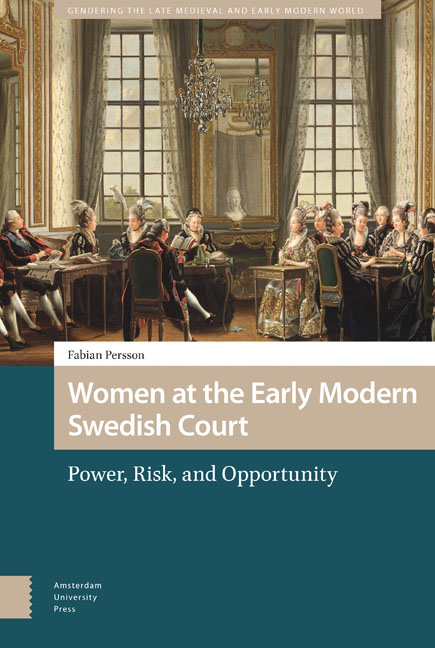14 - The Court as Substitute Family
Published online by Cambridge University Press: 15 April 2021
Summary
Abstract
Not only people serving at court but members of the royal family could fall victim to their surroundings as demonstrated by Princess Sophia Albertina. It appears that the Lolotte affair was a fabrication cooked up by the brothers Gustaf and Magnus Stenbock. Yet in Lolotte the Princess found a longed-for sister, and in her court a replacement for the family that was gradually disappearing. She may have been deceived, but it also made her happy and gave her a family.
Keywords: family, competition, favourite, control
How happy I am to have been given a sister!
– Princess Sophia Albertina to her friend Carolina Rudenschöld, 1795Every royal had a court. They were the people a queen or a princess met most frequently, usually every day for years, and the women in her service lived in the palace in close proximity. Over time, some members of the court would become her friends, in some cases very close friends. This was not automatic. There were plenty of examples of women who served royal women who were cold towards them – Beata Sophia Horn, after all, complained about being ignored by the Queen Dowager and Princess Sophia Albertina. Lovisa Ulrika could be dismissive about her aristocratic Maids of Honour in the 1740s. In a letter to her sister she wrote,
You are surprised at what I have told you that my Maids of Honour attend in the afternoon and the morning at my dressing. For the afternoon, it is very rare, and they do not all have these prerogatives, but in the morning, it amuses me. They are my parrots: they tell me nonsense, and that amuses me and does not bother me, for in the end they are my servants, and I dress as comfortably as if they were not there.
Lovisa Ulrika's words to her sister display a kind of proximity between the Princess and her Maids of Honour, but they also bear testimony of an amused disdain. These women were members of aristocratic families and would not have been happy to be described as ‘domestiques’. These women were constantly there as a key part of royal everyday life and yet they could be dismissed as ‘parrots’ and ‘servants’. In order to strike up such a friendship there had to be something more, something that many people at court were keen to identify.
- Type
- Chapter
- Information
- Women at the Early Modern Swedish CourtPower, Risk, and Opportunity, pp. 287 - 306Publisher: Amsterdam University PressPrint publication year: 2021



